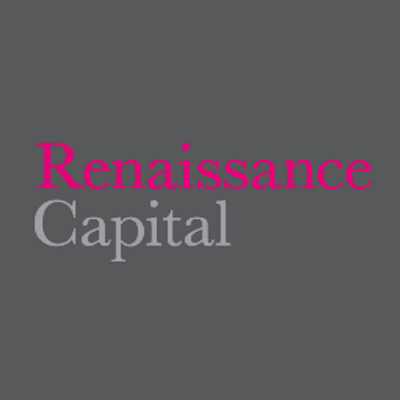Rencap Revises Nigeria’s 2018 GDP Growth Forecast To 2.9%
Renaissance Capital (Rencap), a top-ranked investment banking firm founded in Russia and operating several countries across the globe, on Tuesday revised its 2018 GDP growth forecast for Nigeria to 2.9% from the previous 2%, up also from 0.8% in the 2017 estimates.
The report authored by Yvonne Mhango based this optimism on the hope for increased “government spending ahead of the 2019 elections and looser monetary policy to boost growth. We also think the restoration of a positive consumer confidence index, after six years, is indicative of a recovering consumer and implies more balanced growth in 2018, as opposed to the oil driven growth of 2017.
The report “Sub-Saharan Africa in 2018: Brisker growth, monetary easing,” dated January 30, 2018, expects “brisker growth, monetary easing and a start in the rebuilding of savings in Sub-Saharan Africa (SSA),” with the recovery driven by Nigeria.
The country’s recovery in 2017, it said, was largely driven by its oil sector, adding that outside of agriculture, the remaining two-thirds of the economy was sluggish, while the manufacturing’s return to negative growth in 3Q17 highlighted the fragile recovery.
“Over the medium term we expect growth to remain relatively flat. The downside risks to our 2018 growth outlook include a fall in oil production and/or prices, and an increase in political instability in the months preceding the February 2019 election.
“We forecast a bigger C/A surplus of 2.8% of GDP in 2018, vs 2.4% in 2017E, assuming oil production of 1.9mn b/d (of which 1.8mn b/d are exports) and oil prices of $55/bl. The oil price has started off the year on a strong note, averaging $69/bl in the first three weeks of 2018, which means upside risk to our export revenue projection for in 2018, and by implication our C/A (current account) surplus forecast. The downside risks to our forecast include a pick-up in import demand, on the back of stronger growth and electoral-related spending. In addition, the authorities’ removal of the de facto ban on 36 of the 41 affected items, in late January, could also translate into higher demand.
“If the oil price were to average $70/bl in 2018, the CA surplus would increase to 4.3% of GDP, by our estimates (see Figure 12). We assume oil exports of 1.8mn b/d and that, outside of exports, all other constituents of the C/A remain unchanged under various oil prices.
“On the import front, we expect the pick-up in demand to be tempered by a consumer that remains challenged. We think inflation is likely to remain high, which is negative for real wages. We also do not expect a meaningful wage increase from the government, despite the forthcoming February 2019 elections, because it is revenue-constrained. The last time the federal government imposed a significant wage increase was ahead of the 2011 elections, when the oil price was over $100/bl.”
The report recalled a statement by Godwin Emefiele, Governor of the Central Bank of Nigeria (CBN) of plans to build up FX reserves to $45bn, on top of the remarkable $12.9bn build-up of FX reserves in 2017 to $38.7bn at 2017.
“We think this means the central bank will not use reserves to defend the naira, if such a move would come at the expense of this strategy. We think there is a risk that the naira could turn out stronger than our YE18 forecast, particularly if the $70/bl oil price proves to be durable.
“We expect inflation to slow to c. 11% at YE18, vs 15.4% YoY at Year-end 2017, mainly on the back of a more stable naira, softer food inflation and base effects. The slowdown in YoY inflation in 2017, from 19% at YE16, was largely due to a fall in non-food inflation to 11% at YE17, vs 20% a year earlier. Strong food inflationary pressure was sustained in 2017 by floods, strikes and insurgencies in various parts of the country. We find it encouraging that YoY food inflation slowed in December to 19.4%, from 20.3% in the previous month, after climbing for most of 2017. We expect base effects to support a further softening in inflation in 2018. The upside risks to our lower inflation outlook include expansionary fiscal policy, fuel price pressures and disruptions to food production.”
http://investdata.com.ng/2018/01/rencap-revises-nigerias-gdp-growth-forecast-2-9/#more




Comments
Post a Comment